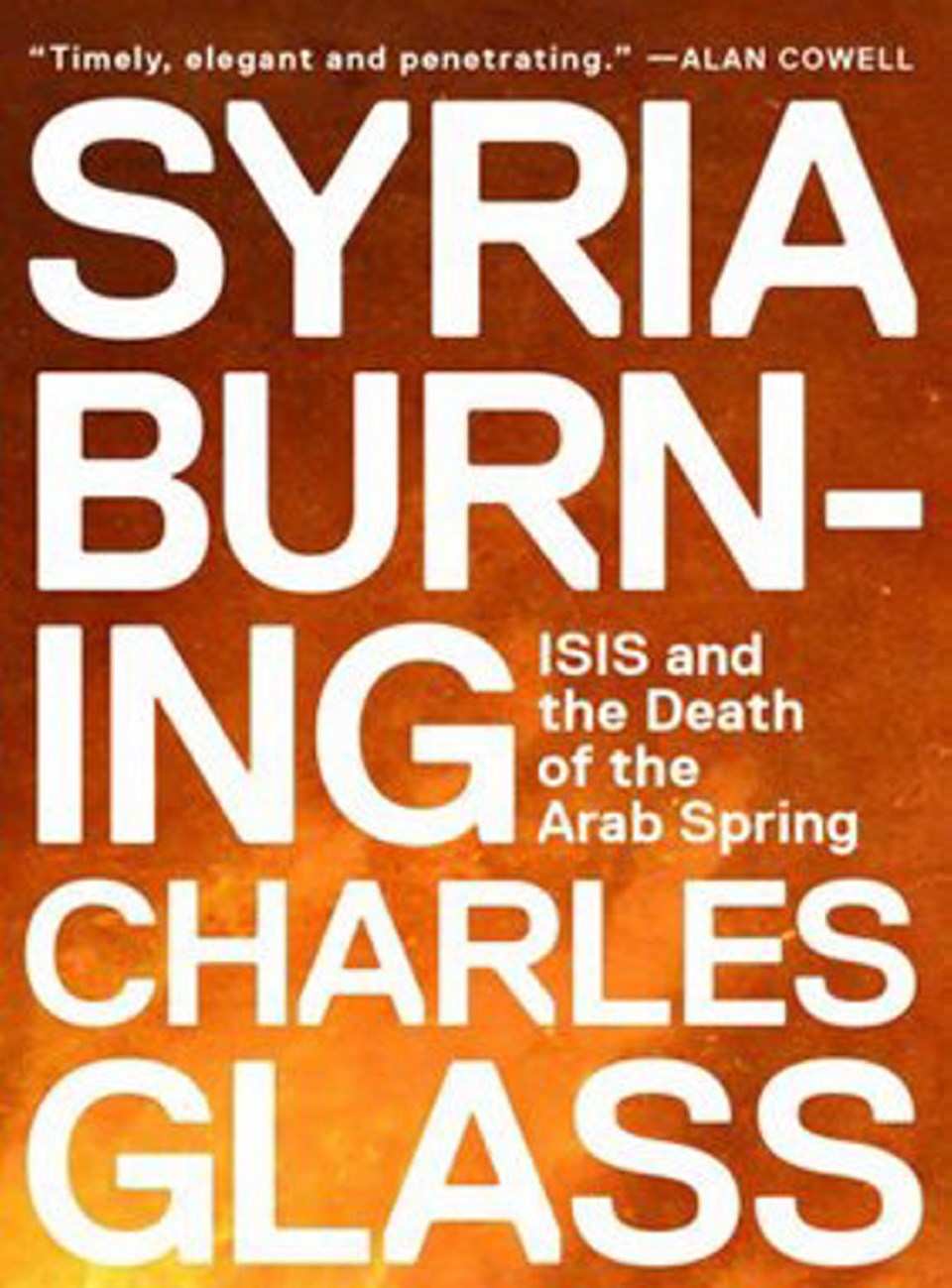Syria Burning: ISIS and the Death of the Arab Spring
By Charles Glass
Verso, 192 pp., $19.95
___________________
At the heart of Syria Burning, his passionate, spot-on overview of the civil war in Syria, Charles Glass takes a pause to remember the Syrian city of Aleppo, founded 8,000 years ago on a hilltop, 360 kilometres north of Damascus.
An entrepot on the fabled Silk Road and Islam’s third most important city during the Renaissance, it was also a beacon of tolerance. “No city in Syria is more mixed or diverse,” Glass writes. “Until now, it has stood for just about everything al-Qaeda of Iraq and ISIS oppose.”
“Until now” arrived one year after the Syrian uprising began five years ago; since then, Aleppo has been caught in the crossfire, reduced to rubble while being torn apart by sectarian hatred that reminds me of what happened to Sarajevo.
Like so much writing about the Middle East, Glass’s book is nostalgic; he’s not shy about stating outright that Syrians were better off under the Ottomans — or even under the pre-2011 Assad regime. He has no illusions about who Assad is. But he also seconds the view expressed by a Syrian friend: “I don’t like the dictatorship. But these people are showing themselves worse.”
“These people” are the Islamic fundamentalists who hijacked an initially peaceful revolution, transforming another hopeful iteration of the Arab Spring into this never-ending Syrian winter. Glass runs the numbers: more than 300,000 dead and 11 million refugees or displaced persons — more than half of Syria’s prewar population of 22 million.
Glass traces how foreign powers pursuing their own agendas spawned an armed struggle that replaced peaceful protests and rendered them irrelevant; as a result, “those who eventually captured the revolution dropped its original objectives in favour of supplanting a secular dictatorship with a dictatorial theocracy.”
Glass assigns Washington a large share of the blame: “The weapons supplied to the fanatics were manufactured in the U.S., and American intelligence in Turkey knew which rebels Turkey, Qatar and Saudi Arabia were assisting.” Those rebels would aid and abet the rise of the Islamic State.
Glass is also clear about why the United States itself supported fundamentalist jihadists and insisted that Assad had to go, even as it continued to support even more repressive regimes like Saudi Arabia: Its nearly pathological hatred for Assad allies Iran and Hezbollah. Five years later, Assad and Iran have become de facto American allies in the war against the Islamic State.
Reading this grim account, it’s hard to disagree with Glass’ conclusion that Americans are “policymaking adolescents” — a view strengthened by historical parallels that Washington ignored and Glass draws with Syria’s uprising against the French in 1925. Or the implosion of Lebanon in 1975. Or vacillations in U.S. policy that long predate the Obama administration.
One wishes some of this history were outlined more clearly; good as Glass’ individual snapshots are, they’re not always strung together coherently, and some of them get repeated. For all that, Glass has tackled an enormously complex war and its context, before concluding just in time for the peace talks underway in Geneva, with sensible solutions.
Accept the reality that Assad is going nowhere. Demand that Turkey act like an ally by closing its open supply lines to the Islamic State. Allow local forces — the Syrian Army, the Kurds and the Iraqi Shiites who helped saved Baghdad — to then destroy a weakened Islamic State on their own.
One can’t reset the clock and go back to the peaceful protests of 2011; those days are now as irrecoverable as the shimmering mirage of the Aleppo that was.
But Washington might help matters immeasurably if it finally admitted that no matter how imperfect, even a brokered peace that includes Assad beats the alternative; the mess America made of Iraq ought to have taught at least that much. If the U.S. government learned and took to the heart the history outlined in Syria Burning, perhaps it wouldn’t repeat it. Again.



